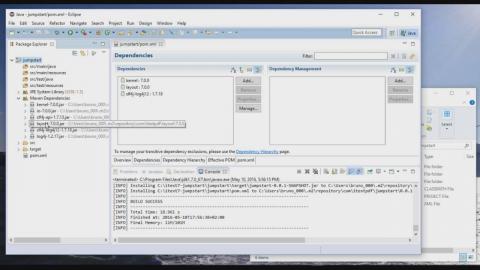Serial Key Generator is application created for software developers who want to protect their applications by serial key registration. Just in a few clicks you are able to generate serial keys for your C#.NET, Visual Basic.NET, Delphi, C Builder and Java applications. INNO and NSIS scripts are also supported. It's easy to use, fast and with the lowest price on the market! The following are top voted examples for showing how to use javax.crypto.KeyGenerator.These examples are extracted from open source projects. You can vote up the examples you like and your votes will be used in our system to generate more good examples. Project Summary. Jicense is a license generator for the products or projects developed using Java language. You could customize your license generator set by implementing the jicense core api or make use of one of the existing demo sources. License Key with Activation. Activation can be enabled on both basic and cryptographically secure license key. After license activation either a node locked activation code or node locked license text depend on license features is returned to customer.
The licence key problem is easy, decide on HOW the licence key will be checked, for example summing the digits adds up to 93, then write a simple function to generate them. Personally, I use a hash code from the registration details, e.g. The user's email. To make an exe is not trivial. Licensing - work - software license key generator open source Looking for a license key algorithm (5) There are a lot of questions relating to license keys asked on Stack Overflow.
This class provides the functionality of a secret (symmetric) key generator.
Java License Key Generator Open Source Key
Key generators are constructed using one of the getInstance class methods of this class.
KeyGenerator objects are reusable, i.e., after a key has been generated, the same KeyGenerator object can be re-used to generate further keys.
There are two ways to generate a key: in an algorithm-independent manner, and in an algorithm-specific manner. /eset-nod32-serial-key-generator.html. The only difference between the two is the initialization of the object:
Open Source Java For Windows
- Algorithm-Independent Initialization
All key generators share the concepts of a keysize and a source of randomness. There is an
initmethod in this KeyGenerator class that takes these two universally shared types of arguments. There is also one that takes just akeysize/office-professional-plus-2016-full-verison-free-product-key-generator.html. argument, and uses the SecureRandom implementation of the highest-priority installed provider as the source of randomness (or a system-provided source of randomness if none of the installed providers supply a SecureRandom implementation), and one that takes just a source of randomness.Since no other parameters are specified when you call the above algorithm-independent
initmethods, it is up to the provider what to do about the algorithm-specific parameters (if any) to be associated with each of the keys. - Algorithm-Specific Initialization
For situations where a set of algorithm-specific parameters already exists, there are two
initmethods that have anAlgorithmParameterSpecargument. One also has aSecureRandomargument, while the other uses the SecureRandom implementation of the highest-priority installed provider as the source of randomness (or a system-provided source of randomness if none of the installed providers supply a SecureRandom implementation).
In case the client does not explicitly initialize the KeyGenerator (via a call to an init method), each provider must supply (and document) a default initialization.
Every implementation of the Java platform is required to support the following standard KeyGenerator algorithms with the keysizes in parentheses:
- AES (128)
- DES (56)
- DESede (168)
- HmacSHA1
- HmacSHA256

License Key Generator For Pc Games
These algorithms are described in the KeyGenerator section of the Java Cryptography Architecture Standard Algorithm Name Documentation. Consult the release documentation for your implementation to see if any other algorithms are supported.Most Viewed News
- ✔ Avast Pro Product Key Generator
- ✔ Quickbooks 2015 Key Generator Torrent
- ✔ Battlefield 3 Premium Key Generator Password
- ✔ Photoshop License Key Generator Online
- ✔ Windows 7 Oem Product Key Generator
- ✔ The Sims 4 Mac Pc Origin Cd Key Generator
- ✔ Git Generate A New Ssh Key On Server
- ✔ Don't Starve Product Key Generator Mac
- ✔ Generate Btc Address From Private Key